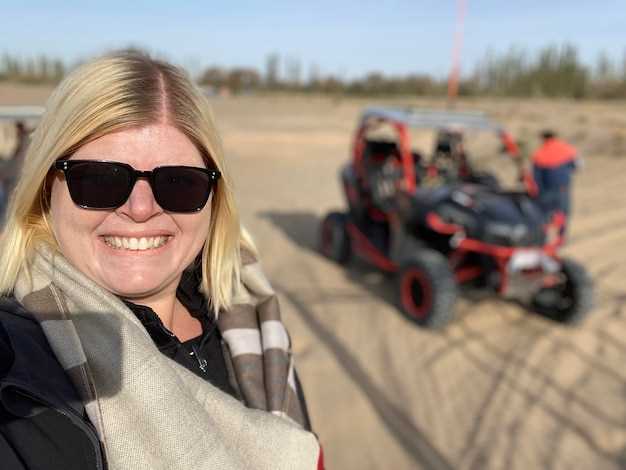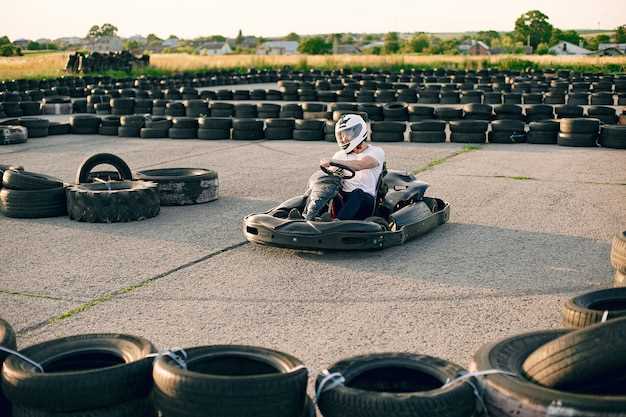
In the competitive world of motorsports, the art of racecraft is crucial for any aspiring driver. Mastering racecraft techniques not only enhances a driver’s ability to navigate complex race situations but also significantly impacts overall performance on the track. Understanding the nuances of racecraft can often be the difference between victory and defeat. Therefore, participating in dedicated events designed to hone these skills is essential for drivers at all levels.
Throughout the racing calendar, several premier events focus specifically on racecraft development. These events provide drivers with the opportunity to engage in hands-on practice and receive guidance from experienced instructors and professional racers. Participants can expect to learn a variety of techniques ranging from precise cornering and strategic overtaking to effective race strategy and mental resilience. Such experiences foster an environment where drivers can push their limits, learn from real-time feedback, and refine their skill set.
In this article, we will explore some of the top events that are renowned for their emphasis on racecraft training. Whether you are a seasoned competitor or a newcomer to the racing scene, these events offer invaluable insights and practical learning experiences that will elevate your racing capabilities. Prepare to dive deep into the world of racecraft and discover how these events can transform your approach to racing.
Analyzing Real-Time Data to Enhance Driving Precision
In modern motorsport, the ability to analyze real-time data is crucial for improving driving precision. Teams utilize advanced telemetry systems that capture a wide range of parameters, including speed, acceleration, braking force, and tire temperatures. These metrics provide insights that are essential for fine-tuning both vehicle performance and driver techniques.
One of the primary benefits of real-time data analysis is the ability to identify optimal racing lines. By monitoring track conditions and vehicle dynamics, drivers can adjust their approach to corners, maximizing speed and minimizing lap times. Real-time data allows for comparisons against previous laps, helping drivers recognize where improvements can be made.
Moreover, the integration of artificial intelligence and machine learning algorithms enhances data interpretation. These technologies can analyze vast amounts of data quickly, offering predictive insights that guide drivers in making informed decisions during races. For example, AI can suggest ideal braking points or throttle applications, enabling drivers to optimize their control over the vehicle.
Furthermore, the feedback loop created by real-time data enables continuous improvement. After each lap, drivers can review data with engineers to pinpoint specific areas for enhancement. This collaborative approach fosters skill development, as drivers learn to adapt their techniques based on data-driven insights.
In summary, the analysis of real-time data is fundamental for mastering racecraft techniques. It empowers drivers to refine their skills, adapt strategies to varying conditions, and ultimately achieve higher levels of performance on the track.
Participating in Simulated Races for Tactical Skill Development

Engaging in simulated races offers drivers a unique platform to hone their tactical racing abilities in a controlled environment. These virtual setups replicate real-world conditions, enabling participants to practice without the risks associated with actual racing. Utilizing advanced software, racers can experience different weather conditions, track layouts, and car dynamics that are crucial for improving their decision-making skills on the circuit.
One of the primary benefits of simulated racing is the ability to analyze and review performance data. Many simulators provide detailed telemetry that allows racers to dissect their laps, identify areas of improvement, and refine their techniques. By studying braking points, throttle application, and racing lines, drivers can develop a deeper understanding of vehicle behavior and optimize their approaches to different scenarios.
Tactical skills such as overtaking strategies and defensive driving can be practiced effectively in simulations. With AI opponents or online competitors, racers can experiment with various racing lines and defensive maneuvers without causing real-world consequences. This helps in building confidence and letting drivers learn how to adapt their tactics in response to competitors’ actions.
The social aspect of simulated racing also fosters skill development. Online platforms often host competitive leagues and events, encouraging drivers to engage with a community of peers. This interaction allows for the sharing of strategies and experiences, providing valuable insights that can enhance individual performance. Networking within this community can also lead to mentorship opportunities where experienced drivers can coach newcomers on specific tactical elements.
Furthermore, simulated races allow drivers to practice under pressure. Invoking the same mental and emotional stakes as actual races, these simulations help racers develop their composure and focus during critical moments. The ability to replicate the stress of a real race environment prepares drivers to handle high-pressure situations more effectively during actual events.
In conclusion, participating in simulated races serves as an indispensable tool for developing tactical skill sets. The combination of data analysis, competitive practice, and social engagement within the virtual racing community equips drivers with the knowledge and confidence needed to excel on the track.
Engaging with Professional Drivers for Direct Feedback on Race Strategies

Interacting with professional drivers offers invaluable insights into race strategies and techniques that can significantly enhance an aspiring racer’s skills. These seasoned athletes possess firsthand experience that can provide practical advice tailor-made for real-world track conditions.
One of the most effective ways to engage with professional drivers is through organized workshops or driver coaching sessions. These events allow for a hands-on approach, where participants can learn directly from experts. Professionals often share their unique perspectives on braking, cornering, and acceleration, breaking down complex maneuvers into manageable techniques.
Additionally, utilizing social media platforms allows for informal engagement. Many professional drivers actively share their thoughts on race strategies through live Q&A sessions, webinars, or even social media posts. Engaging in these discussions encourages aspiring racers to ask specific questions and receive immediate feedback. This exchange can clarify doubts and enrich their understanding of racing dynamics.
Joining racing clubs or associations that feature guest lectures from professional drivers is another strategic avenue. These environments foster an open dialogue about racecraft, enabling participants to discuss personal experiences and receive tailored advice directly from industry leaders. Networking during these events can also lead to mentorship opportunities, where ongoing feedback can elevate an aspiring driver’s racecraft.
Lastly, analyzing professional racing footage while interpreting the drivers’ decisions during races can further enhance understanding. By approaching these videos critically, aspiring racers can better comprehend the application of various strategies and directly relate those insights to their own racing experiences.

